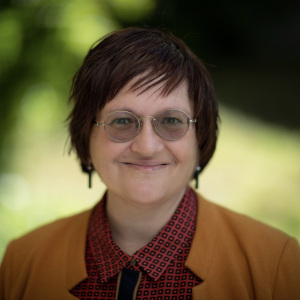- Share
- Share on Facebook
- Share on X
- Share on LinkedIn

Sibel ERDURAN
is a Professor of Science Education at the Department of Education, University of Oxford, United Kingdom where she is a Fellow of St Cross College. She is a Fellow of the American Educational Research Association and an Editor for the International Journal of Science Education. She taught middle school science and high school chemistry in Cyprus. She received her BA from Northwestern University (Biochemistry), MSc from Cornell University (Food Chemistry) and PhD (Science Education & Philosophy) from Vanderbilt University, USA.
Project at the MaCI
April 2025
Although artificial intelligence (AI) is increasingly having a major impact on science, secondary school science education is yet to reflect the latest fast-changing developments in scientific thinking and practices. AI is used by scientists to generate hypotheses, design experiments, collect and interpret data in ways that were not previously possible with traditional methods alone. A significant shortcoming in science education research is limited understanding of how to integrate AI-use in science in secondary science teaching and learning. The project has an interdisciplinary agenda drawing on expertise of researchers from the humanities, STEM, and social sciences among others, and aims to produce (a) conceptual synthesis on AI use in science from an interdisciplinary perspective, and (b) a set of pragmatic recommendations for reforming school science curriculum. The activities will include seminars and research publications which will contribute to the theoretical background of further research that will potentially include empirical investigations. The pragmatic set of recommendations will be compiled in a report, and they will potentially be instrumental in informing science curriculum policies.
The research aims to generate, through expert reflections and resources, (a) conceptual synthesis on AI use in science from an interdisciplinary perspective (e.g., academic domains such as epistemological reflections and pedagogical evidence as well as business stakeholders needs), (b) a set of pragmatic recommendations for school science based on science education research evidence. The research builds on a tradition about the study of expertise from different domains including the humanities and the social sciences.
Selected recent publications:
- Erduran, S., & Levrini, O. (2024). The impact of artificial intelligence on scientific practices: an emergent area of research for science education, International Journal of Science Education, DOI: 10.1080/09500693.2024.2306604
- Wu, J. Y., & Erduran, S. (2024). Investigating scientists' views about the utility of the Family Resemblance Approach to nature of science in science education. Science & Education. DOI: 10.1007/s11191-021-00313-z
- Kaya, E., Erduran, S., & Okan, B. (2024). Nature of science and domain-specificity: investigating the coverage of nature of science in physics, chemistry and biology curricula across grade levels. International Journal of Science Education, 1–31. https://doi.org/10.1080/09500693.2024.2348822
- Erduran, S., & Cheung, K. K. (2024). Using the Family Resemblance Approach to Inform STEAM Education. London Review of Education, 22 (1), 10. DOI: https://doi.org/10.14324/LRE.22.1.10.
- Erduran, S. (2023). AI is transforming how science is done. Science education must reflect this change. Science. Vol 382, Issue 6677, DOI: 10.1126/science.adm9788
Activities
- 9 April 2025 - Lecture The Unfolding Revolution: The Impact of AI on Science and the Educational Imperative
-
24 April 2025 - GATES Talk Evidence or Misinformation: Navigating the Post-Truth Turbulence
Supported by the GATES project (Grenoble ATtractiveness and ExcellenceS), funded by the French government's Programme d'Investissement Avenir and implemented by ANR France 2030
Websites
- X (former Twitter): @ErduranSibel
- https://www.education.ox.ac.uk/people/sibel-erduran/
- Share
- Share on Facebook
- Share on X
- Share on LinkedIn
